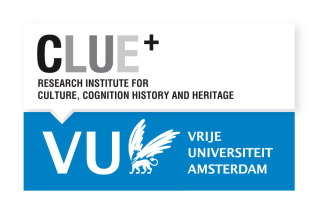
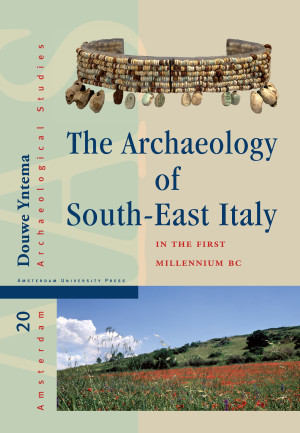
- Title
- The Archaeology of South-East Italy in the First Millennium BC
- Subtitle
- Greek and Native Societies of Apulia and Lucania between the 10th and the 1st Century BC
- Author
- Douwe Yntema
- Price
- € 129,00 excl. VAT
- ISBN
- 9789089645791
- Format
- Hardback
- Number of pages
- 312
- Language
- English
- Publication date
- 27 - 12 - 2013
- Dimensions
- 21 x 29.7 cm
- Open Access
- Download on Open Access Platform
- Partner

- Category
- Antiquity
- Discipline
- History, Art History, and Archaeology
- Also available as
- eBook PDF - € 0,00
Douwe Yntema
The Archaeology of South-East Italy in the First Millennium BC
Greek and Native Societies of Apulia and Lucania between the 10th and the 1st Century BC
Synthesizing some 30 years of archaeological research in south-east Italy, this book discusses a millennium that witnessed breathtaking changes: the first millennium BC. In nine to ten centuries the Mediterranean societies changed from a great variety of mostly small entities of predominantly tribal nature into the enormous state currently indicated as the Roman Empire.
This volume is a case study discussing the pathway to complexity of one of the regions that contributed to the formation of this large state:south-east Italy. It highlights how initially small groups developed into complex societies, how and why these adapted to increasingly wide horizons, and how and why Italic groups and migrants from the eastern Mediterranean interacted and created entirely new social, economic, cultural and physical landscapes. This synthesis is based on research carried out by many Italian archaeologists and by research groups from quite a variety of other countries.
Amsterdam Archaeological Studies is a series devoted to the study of past human societies from the prehistory up into modern times, primarily based on the study of archaeological remains. The series will include excavation reports of modern fieldwork; studies of categories of material culture; and synthesising studies with broader images of past societies, thereby contributing to the theoretical and methodological debates in archaeology.
This volume is a case study discussing the pathway to complexity of one of the regions that contributed to the formation of this large state:south-east Italy. It highlights how initially small groups developed into complex societies, how and why these adapted to increasingly wide horizons, and how and why Italic groups and migrants from the eastern Mediterranean interacted and created entirely new social, economic, cultural and physical landscapes. This synthesis is based on research carried out by many Italian archaeologists and by research groups from quite a variety of other countries.
Amsterdam Archaeological Studies is a series devoted to the study of past human societies from the prehistory up into modern times, primarily based on the study of archaeological remains. The series will include excavation reports of modern fieldwork; studies of categories of material culture; and synthesising studies with broader images of past societies, thereby contributing to the theoretical and methodological debates in archaeology.
Author
Douwe Yntema
Douwe Yntema is professor of Mediterranean Archaeology and member of the Research Institute CLUE at the Vrij University Amsterdam , as well as fellow of the Royal Netherlands Academy of Arts and Sciences.
Related titles
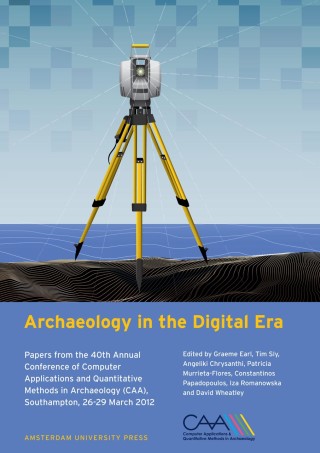
Archaeology in the Digital Era
Angeliki Chrysanthi, Konstantinos Papadopoulos, Patricia Murrieta-Flores, Timothy Sly, Earl Earl, David Wheatley, Iza Romanowska, Philip Verhagen (eds)
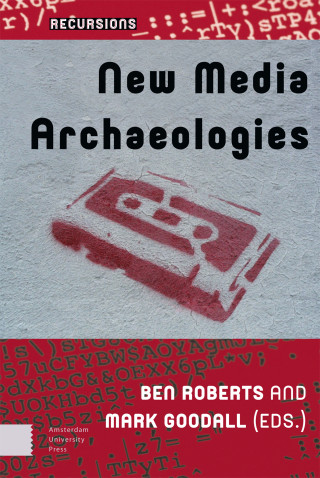
New Media Archaeologies
Ben Roberts, Mark Goodall (eds)
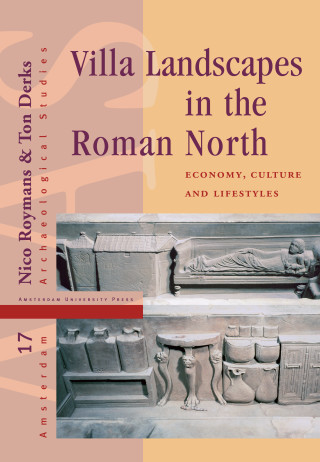
Villa Landscapes in the Roman North
Ton Derks, Nico Roymans
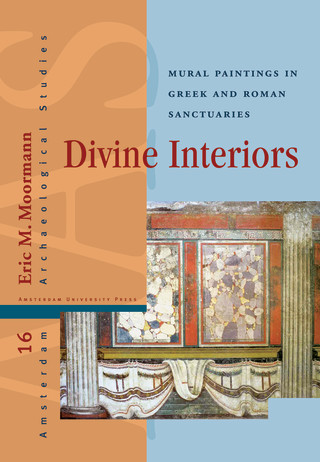
Divine Interiors
Eric Moormann
